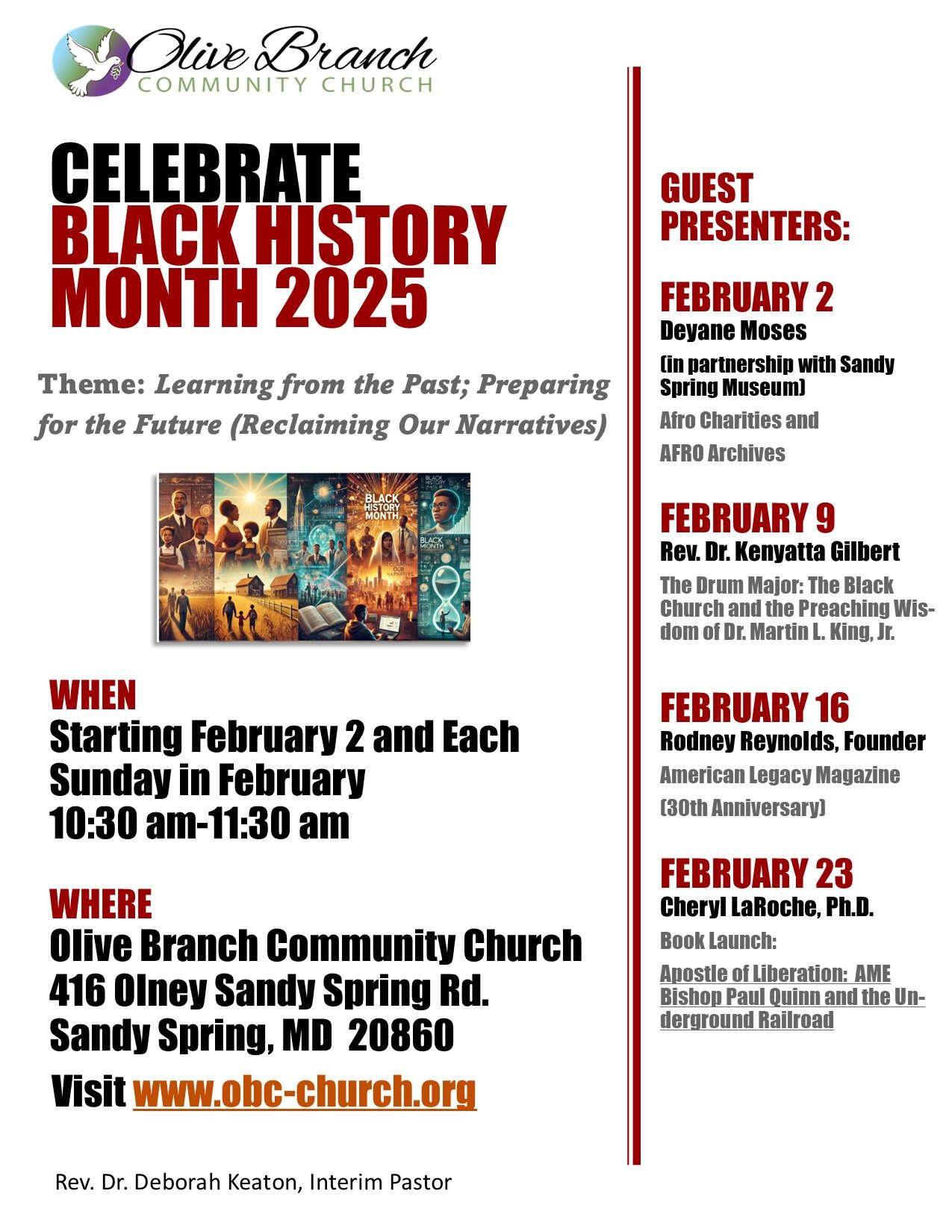2025 Black History Month at OBCC

Schedule & Speaker Bios
Theme: Learning from the Past; Preparing for the Future (Reclaiming Our Narratives)
The archival record shows what African Americans have done in “impossible situations.” We had faith in God, we believed, we refused to accept a stagnant state; we worked hard, we survived. We took back our stories from those who had laid claim to them; we wrenched them from their lips and their pens and dusted them off when they were covered with dirt; we made a point of including everyone whose voice had been forgotten and whose perspectives had been ignored.
The archival record is written in print; captured in images; told in oral stories. The narratives in this record are rooted in power and faith and are pointed toward hope and possibilities. We at OBCC – a Bible-based community in community with our community – honor the archival record and are committed to assuring that it survives and comes alive.
In 2025, we embrace it with hope.
We invite you to view our African American History and Culture Ministry page.

